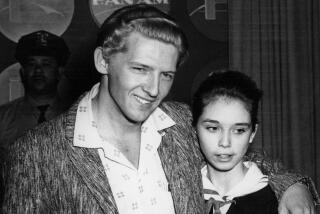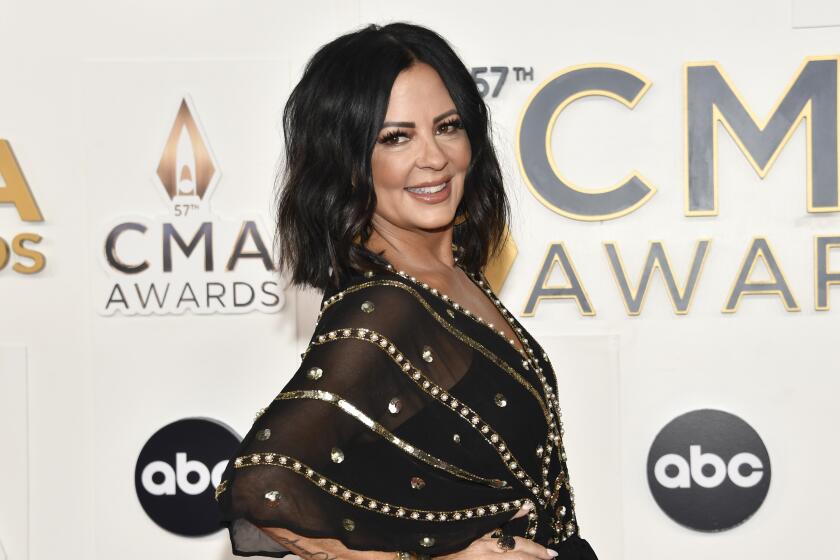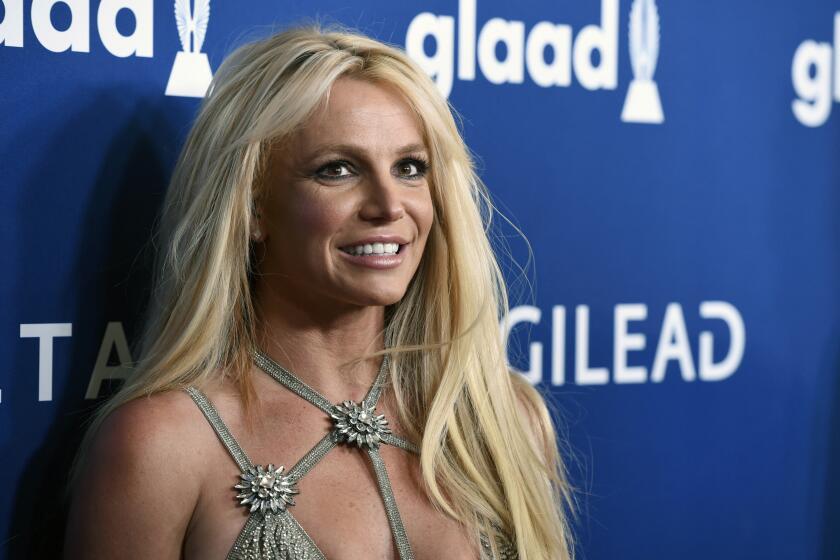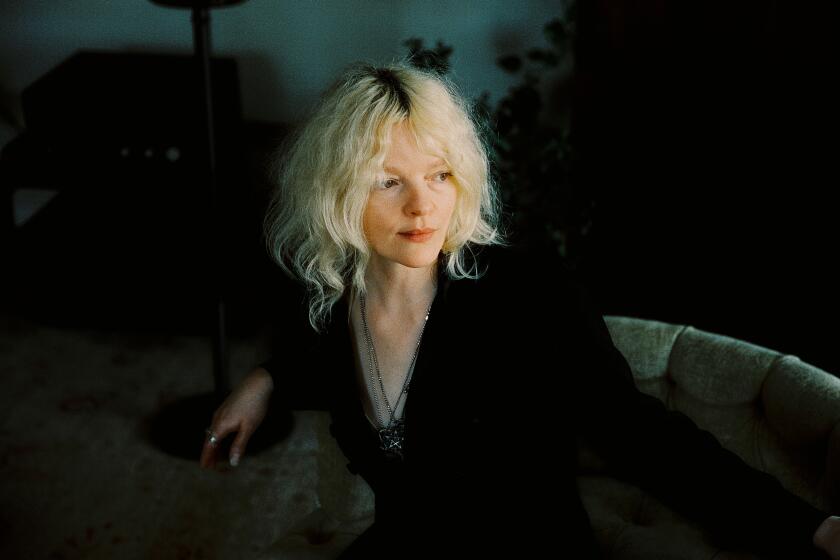POLITICAL ACTIVIST PROBES MAIN STREAM OF MUSIC
In an era when political music has come to mean Bruce Springsteen and Bob Geldof and Live Aid-scale extravaganzas, can a part-time social activist and folk singer have any relevance?
“People have asked me, ‘Aren’t you a relic?’ ” said Si Kahn, a singer-songwriter who is much more at home in meeting halls and living rooms than in stadiums.
“My sense is that Geldof and Springsteen are saying that there is nothing old-fashioned about a musical social conscience,” Kahn continued during a phone interview from his Charlotte, N.C., home, where he lives with his wife and three sons.
“What they represent to me and others who are dealing with topics in music is that the work we are doing is reaching the mainstream. Springsteen’s roots are in the tradition of political music in America as well as rock ‘n’ roll.”
The concert Kahn will give Saturday at the Leo Baeck Temple with former Weavers member Ronnie Gilbert is on the scale he’s used to. But Kahn doesn’t think that the current focus on massive political music events has left his ilk in the dust. In fact, he sees it as a blessing.
“I think it’s great to be able to turn on the radio and hear good rock ‘n’ roll and good politics in one song,” he said. “And the fact that people are doing it well takes the pressure off me to try to find new ways to communicate.”
Kahn, 42, grew up in Pennsylvania where his father was a rabbi working with students. “I would not describe him as political, but he and my mother had a very deep sense of justice . . . which is where I believe I got my politics from,” he said, noting that his parents imparted to him a sense that he was very lucky. “And if you are, you better be willing to share it a little bit.”
This heritage has been channeled into Kahn’s work as president of the Jewish Fund for Justice, a Washington, D.C.-based organization he co-founded (and which Saturday’s concert will benefit).
“The great majority of my time is spent doing (labor) organizing work,” said Kahn, who has written two books on grass-roots politics and who conducts workshops on both politics and music. “That’s how I make my living. The music is a sideline. But there aren’t lines on my calendar where the organizing work stops and the singing begins. I see myself by profession an organizer and by avocation a musician.”
Nevertheless, Kahn has released four solo albums plus two collaborations, the latest being an anthology of labor and civil-rights songs done with Pete Seeger and Jane Sapp. His best songs are the kind of touching character studies that would not be out of place on Springsteen’s stark “Nebraska” album.
“A guitar is not a sledgehammer,” he insisted, noting that his message is not always obvious. “Part of my philosophy is slip it by them if you can.”
He recalled one time when he was recording a song about a man offering emotional support for a gay friend. “We had one of those old country boys who works in the mill play steel guitar. We had him play six or seven takes, and asked him what he thought. He just said, ‘It’s a real nice tune.’ He hadn’t even noticed the words.”
Still, Kahn acknowledges that unlike a big rock star who can spread a message to millions at a time, he generally finds himself addressing small groups of people who already agree with him.
“It’s absolutely true that to a high level I’m preaching to the converted,” he said. “In the first place the converted deserve someone to preach to them. I’m happy to play for people who share the feelings I do. I’m real happy to perform for people who I consider friends. It makes the concerts less concerts than time with friends.”
More to Read
The biggest entertainment stories
Get our big stories about Hollywood, film, television, music, arts, culture and more right in your inbox as soon as they publish.
You may occasionally receive promotional content from the Los Angeles Times.






